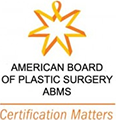Skin Care Series: My Thoughts on the Good
March 19, 2014
Atlanta laser resurfacing, Atlanta plastic surgeon, Atlanta skin care, Atlanta skin care tips, Atlanta wrinkle reducers, chemical peels in Atlanta ga, laser resurfacing Atlanta ga, Rapid City chemical peels, Rapid City cosmetic surgery, skin care treatments Atlanta ga
Everyone is looking for that magic cream to reverse the signs of aging but often times it is difficult for some of us to distinguish between all the confusing, and at times ridiculous, claims made by skin care products in today’s market. As the first of a two-part skin care series, I will discuss my thoughts on the “good” side of skin care as well as my recommendations on a few beneficial essentials for keeping your skin hydrated, glowing and healthy.
Sunscreen: Perhaps the single best tool to prevent signs of aging and cancer. Ultraviolet (UV) radiation from the sun comes in multiple wavelengths: UVA, UVB and UVC. UVC, the most destructive form, is completely blocked by the ozone layer. UVA penetrates deeper into the skin and is primarily responsible for collagen/elastin damage contributing to wrinkles. UVB is absorbed in the outer layers and more responsible for skin cancers/discoloration. Sunscreens come in multiple flavors; however, be sure to buy at least an SPF 45. As SPF only applies to UVB protection, buy sunscreens with excellent UVA and UVB protection that are also made with titanium dioxide or zinc oxide as they protect against all forms of UV radiation.
My recommendation: TiZO3 – available at AYA Medical Spa (AYA) – because the matte finish doesn’t leave you looking like a mime!
Retinol: A once nightly application of retinoid cream is recommended to all my patients. Retinol and its metabolites are clinically proven to thin the outer, course layer of skin and align the inner layers of the epidermis (reducing wrinkles and giving skin a healthy glow). It also slows pigment production, thereby smoothing color variations seen with aging. Retinoid creams are available as retinol and retin-A (tretinion). Tretinoin is the more potent and active form but can be too strong for beginning users’ faces; therefore, I recommend transitioning from retinol to tretinion gradually until the skin can tolerate a nightly application without irritation.
My recommendation: Revision Skincare® Retinol Facial Repair – available at AYA.
Vitamin C: Vitamin C serves as a powerful anti-oxidant, skin lightener and enzyme that helps the creation of collagen. Not only does Vitamin C smell great but it also acts as a mild sunscreen against UVB rays and reverses DNA damage that can lead to cancer. Not all Vitamin C creams are created equally. When buying a product, be sure that it is in the L-ascorbic acid form and packaged in an opaque pump-style bottle as Vitamin C in the L-ascorbic form can penetrate the deeper, outer layers of the skin. Additionally, it is unstable in air and quickly oxidizes to an inactive form so buying a product that comes in a pump minimizes the creams exposure to air only just before being applied. If your current Vitamin C cream is a yellow-brown instead of off-white then it is useless.
My recommendation: Revision Skincare® Vitamin C 30% lotion – available at AYA.
Moisturizer: A twice-daily moisturizer acts as the foundation of any skin care regimen and is one product where more expensive does not mean more effective. Moisturizer clearly gives the skin a healthy glow and sheen, but just as importantly it hydrates it. Applying moisturizer after washing your face, followed thirty minutes later by other skin care products, allows for better penetration of topical creams like retinoids and vitamin serums.
My recommendation: choose a product that does not cause oil retention and acne formation while at the same time doesn’t cost more than your Netflix monthly fee.
Manuka Honey: Medical-grade honey has long been used for the treatment of burn wounds and infected ulcers. Manuka honey is a special form that is produced in a region of New Zealand. This honey contains peroxidase, an enzyme that naturally fights skin bacteria and lightens sunspots, and methylglyoxal, which fights a broader range of bacteria responsible for acne. Manuka honey is a natural product free of parabens and additives. It has become one of my standard skin care regimens after both chemical peels and laser resurfacing, because it is a potent anti-oxidant, moisturizer and causes less breakouts.
My recommendation: contact our office if you are interested in adding this to your skin care regimen as there is only a small amount produced each year and a very large counterfeit market.
Stay tuned for the next part of my skin care series in the upcoming weeks. In the meantime, if you are interested in a skin care treatment or cosmetic procedure I perform please give us a call at 404-250-3393. Also be sure to connect with me, Dr. Hunter Moyer, on Facebook, Twitter and Google+ for more updates and news on plastic surgery.









